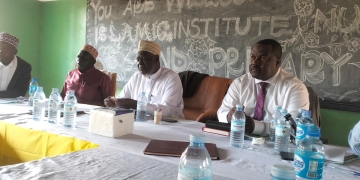
KAMPALA, Uganda – Over 30 stakeholders from Uganda’s transport and energy sectors gathered at the Kolping Hotel in Kampala for a workshop aimed at accelerating the adoption of electric mobility (e-mobility) in the country.
Organized by the Environment for Development (EfD)-Makerere University Centre, the workshop brought together researchers, policymakers, transport operators, and private sector players to address challenges and opportunities in Uganda’s e-mobility transition.
The transport sector is a significant contributor to Uganda’s greenhouse gas emissions, accounting for 16% of energy-related emissions. The workshop emphasized the importance of transitioning to e-mobility as a strategy for reducing emissions and improving energy efficiency.
Dr. Peter Babyenda, Policy Engagement Specialist at EfD-Mak, highlighted the environmental and economic benefits of e-mobility, stating, “Transforming Uganda into a modern society as envisioned under Vision 2040 demands that we address the environmental challenges in the transport sector.”
The workshop discussed various topics, including the status of energy efficiency, the role of women in e-mobility, and strategies to promote the adoption of electric motorcycles and buses.
Uganda has seen a significant increase in vehicle and motorcycle usage, with the number of vehicles more than doubling from 739,036 in 2012 to 1,355,090 in 2018. Motorcycles have seen an even sharper increase, growing from 354,000 in 2010 to over one million by 2018.
Electric mobility is emerging as a viable solution to reduce emissions and improve energy efficiency. Over 400 electric motorcycles are already on Uganda’s roads, offering cost savings on fuel and maintenance, zero emissions, and enhanced security.
However, several barriers hinder the widespread adoption of e-mobility in Uganda. These include limited charging stations, counterfeit batteries, high upfront costs, and insufficient public awareness.
To address these challenges, participants recommended expanding charging networks, introducing subsidies for electric vehicles, enforcing quality standards for batteries, and conducting nationwide sensitization campaigns.
The workshop was part of the Inclusive Green Economy (IGE) program, a regional initiative funded by Sida through the University of Gothenburg, Sweden.
As Uganda embarks on its e-mobility journey, stakeholders expressed optimism about the country’s potential to reduce emissions and improve energy efficiency.
Dr. Babyenda emphasized the importance of inclusivity, stating, “Achieving energy efficiency requires collective effort. We must involve everyone, from boda boda riders to policymakers, to ensure a successful transition to clean, efficient transport.”
With over 400 electric motorcycles on Uganda’s roads and a growing network of charging stations, the country is making strides in its journey toward sustainable mobility. However, much work remains to achieve widespread adoption and integration of e-mobility solutions.










